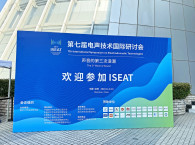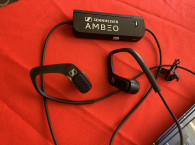Minister, Mentor, Intellectual, and Friend
Like so many in the audio community, I was saddened to learn of the death of my friend and mentor Edward T. Dell, Jr., in late February, just two weeks after his 90th birthday. Ed was the founder and longtime editor and publisher of Audio Amateur magazine and its peripheral publications and successors.
Not initially destined for a career in audio, Ed Dell’s undergraduate education was at Eastern Nazarene College in Quincy, MA, where he earned a BTh and a BA in History. He later completed a MDiv degree at Episcopal Divinity School in Cambridge, MA, and became an ordained Episcopal clergyman. In the early 1960s, he joined the editorial staff of The Episcopalian magazine, where he held various editorial positions until 1974.
Running parallel to his career in the Episcopal church was a passion for music that, as it did for many of us, fueled his interest in audio. While living in Swarthmore, PA, he developed a friendship with his neighbor, J. Gordon Holt, founder of Stereophile magazine. In 1966, Holt designated the winter issue a “Special Construction Issue.” The entire magazine was devoted to a lengthy article by Ed titled “The Brute?A Super-Amplifier for the Do-It-Yourself Perfectionist.” That article, describing his elaborate remake of the Dynaco Stereo 70 vacuum tube power amplifier, appeared at a time when DIY articles on audio equipment were few and far between in mainstream publications. There were occasional offerings in magazines (e.g., Audio and Popular Electronics) but little else, so one would have expected Stereophile’s “Special Construction Issue” to be a huge success, having filled a major void in the audio press. Well, nothing could have been further from the truth, and the “Letters” section of the next issue was dominated by correspondence from displeased readers.
Their comments included: “I have just received the ‘Winter Construction Issue.’ I can hardly wait for my subscription to expire,” and “I was so pleased with your ‘Special Construction Issue’ that I burned it, page by page.”
Another reader wrote: “Are you people nuts or something? Here I sit, for unending month after month, waiting for your next batch of equipment reports and record reviews, and what do I get for my patience? A whole issue aimed at the solder-and-spaghetti crowd.” This reader really identified the root of the problem, which was Stereophile’s erratic publication schedule. When and if the next issue finally arrived, readers wanted equipment reviews, not construction articles, and Holt assured them that this would be the case, henceforth.
But Ed was convinced there was an untapped market for a magazine devoted to DIY audio (Holt agreed), and in 1970 he founded The Audio Amateur, leading off with a power amp article by Reg Williamson, an author who would remain a staple of the magazine for years to come. Ed chose the magazine’s title carefully?“audio amateurs” were individuals who pursued their interest as an avocation, for pleasure and not for profit.
The word “amateur” in no way implied substandard or inferior work?far from it. Like those involved in the field of amateur radio, Ed believed that the work of audio amateurs should serve as models for the industry in the excellence of their designs and quality of construction. Throughout the coming decades, Ed would add some of the most-respected names in the audio field to his masthead, including Walt Jung, Nelson Pass and Erno Borbely, to name but a few.
Ed’s vision proved to be on target, and after publishing The Audio Amateur as a sideline to his “day job” for five years, he moved the entire operation to Peterborough, NH, in August 1975, where it became his full-time occupation. Believing there was sufficient interest in loudspeakers to warrant a separate magazine, he launched Speaker Builder in 1980. His timing could not have been better. Within a few years, the PC would revolutionize loudspeaker design, and Speaker Builder offered articles at the forefront of this rapidly evolving technology. Ed eventually created a third publication, Glass Audio, responding to the increasing interest in vacuum tube audio equipment. In 1996, Audio Amateur was renamed Audio Electronics and changed from a quarterly to a bimonthly publication. Finally, in response to a changing economic and demographic climate, the three magazines were combined into the single, monthly periodical, audioXpress, that we have known for more than a decade.
Without Ed’s vision and determination, the DIY audio industry we have come to take for granted would not exist, and literally hundreds of excellent projects and designs would never have come to fruition.
I first met Ed Dell in 1980 at the Audio Engineering Society convention in New York City, after having spoken with him on the phone once or twice. We talked about my writing for his magazines, which ultimately happened, and a friendship developed and continued until the end of his life.
In 1985, my wife, Ellen, and I invited Ed to spend a weekend with us in Potsdam, NY. For the next 15 years or so, he continued to visit us nearly every summer. But, it was during that first visit that we came to know something of the breadth of his educational background and intellect. Ellen is a lifelong Episcopalian, and that became the basis for many interesting conversations between them. He told Ellen about having visited C.S. Lewis early in his tenure at The Episcopalian, and gave her a copy of Dorothy Sayers’ The Mind of the Maker, expressing regret that he never had the opportunity to meet Sayers. Ed recalled how he came to find the Episcopal Church a refreshing alternative to the fundamentalism he had experienced growing up. (“I don’t like fundamentalists of any kind,” he once told me.) He also mentioned being influenced by the metaphysical views of 20th century philosopher Alfred North Whitehead, who had said, “There are no whole truths; all truths are half-truths. It is trying to treat them as whole truths that plays the devil.” Ed was, indeed, someone who spent his life seeking truth, and this permeated everything he did, not the least of which was his work in audio.
Ed was especially fond of our daughter, Michelle, who was 16 months old when he first visited. He enjoyed watching her developing interests as she grew up. Ed was one of the most well-read individuals we have ever met, and as Michelle became an avid reader, he did his best to encourage her. One of her all-time favorite books was James Thurber’s The 13 Clocks, which Ed brought as a present during one of his visits. Ed was also very interested in poetry, and for a time owned Golden Quill Press, a small business located in Francestown, NH, that published books of poetry. When poetry became Michelle’s chosen specialization as an English major at Hartwick College in Oneonta, NY, and later as a graduate student at New England College in Henniker, NH, he and Michelle found yet another avenue for conversation during several visits we made to Peterborough during her college years.
His white hair aside, for much of the time I knew him, Ed always seemed younger than he really was, in both his attitudes and his interests. When the PC began to make inroads in the early 1980s, many members of his generation feared them and ran the other way. Ed had already purchased an Ohio Scientific mini-computer for his business to manage the subscription list and had built a Heathkit terminal for it. When clone boards and cases became available for IBM-style PCs, Ed jumped right in and began building them for his office. In 1985, he started a DIY magazine called Computer Smyth (that venture was short-lived, the market was saturated with computer publications). Finally, in early 1986 he asked me, “When are you getting a computer?” Thanks to his prodding, I began researching XT-clone parts and, by early October, I had my first computer up and running (and not a moment too soon, I might add). Ed was still building his own computers, and learning new CAD software, well into his 80s.
“Quiet intensity” is the way I would describe Ed’s demeanor. Though generally soft-spoken, he was a man of strong convictions whose mind was always at work. Nothing got by him, and he was one of those rare individuals who spent at least as much time listening as he did talking. Ed greatly enjoyed the company of people and enjoyed bringing them together. One of the most important things he achieved as an audio publisher was fostering relationships between his authors, both informally and for collaborative projects. I once mentioned this to him, and he commented that it was the most rewarding part of his job.
Ellen and I last saw Ed early last summer. We passed through Peterborough on our way to Maine and took him out to lunch, which we all enjoyed. Ed was using a walker, but was still able to get around with help. He was in an assisted-living facility at that point, and had a small stereo system set up in his room, where he was listening to a complete cycle of Mahler symphonies he had recently acquired. After our visit, Ellen noted that, though he was obviously thinking more slowly than in years past, he still had his edge and the characteristic twinkle in his eye (especially when he asked about Michelle). Last December, he was in the hospital, and we phoned him there in early January. We talked about stopping in again this summer on our way to Maine.
Over the past several months, much has been written about Ed Dell’s contributions to audio. Ellen and I also remember him as a humanist with a keen intellect and broad-ranging knowledge and interests. Personally, I will always be grateful for his help and encouragement at the very beginning of my long career as a writer. Ed left a lasting impression on everyone who was fortunate to know and work with him. Though we will surely miss him, he has left us an enduring legacy.
—Gary Galo, an audio engineer at The Crane School of Music, SUNY, at Potsdam, NY, is an audioXpress contributor.






